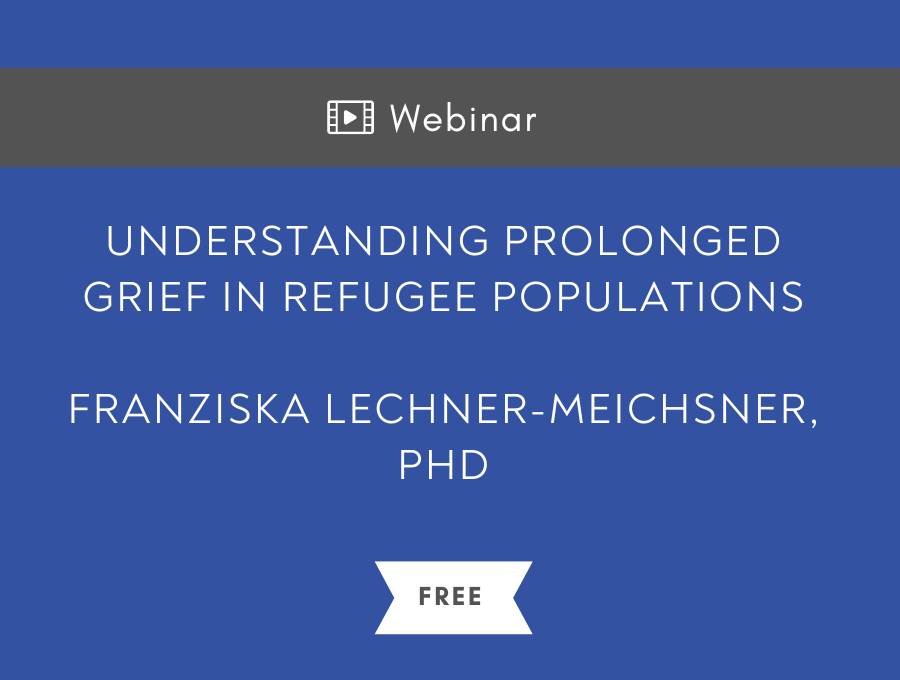
Understanding Prolonged Grief in Refugee Populations
About Course
Prolonged Grief Disorder therapy is an effective approach for individuals experiencing prolonged grief, offering proven efficacy in addressing their condition. Applying procedures from prolonged grief disorder treatment provides the clinician with a road map for a successful treatment. What does a therapist do when these procedures go awry? A case example will be presented to illustrate this dilemma and show exactly what a clinician did when this occurred.Overview
The number of refugees worldwide has reached an all-time high and many individuals experience the death of loved ones before, during, or after displacement. Refugees consistently show higher rates of prolonged grief disorder (PGD) compared to non-refugee populations, which highlights the urgent need for culturally sensitive assessment and intervention strategies. This presentation will delve into key risk factors for PGD in refugees, emphasizing the role of migration-related stressors. Many losses occur under traumatic circumstances or in the context of other traumatic events, resulting in substantial comorbidity between PGD and post-traumatic stress disorder. Drawing on findings from community and treatment-seeking refugee samples, the presentation will address how symptoms of the disorders can be disentangled and understood. Lastly, the presentation will discuss illness beliefs and treatment expectations surrounding PGD in culturally diverse groups and their implications for tailoring effective, culturally sensitive interventions.
Learning Objectives
- Identify factors that put refugees at a higher risk for prolonged grief disorder
- Gain knowledge about lay beliefs and treatment expectations that can inform treatment planning
- Understand how different methodological approaches can be used to improve our knowledge of prolonged grief in refugees
About the Presenter
Franziska Lechner-Meichsner is professor (tenure track) for Clinical-psychological Intervention at University of Wuppertal (Germany) and affiliated with Utrecht University (the Netherlands). Her research centers on loss- and trauma-related disorders, with a particular focus on the treatment of prolonged grief disorder, imagery rescripting, and identifying processes that make treatments work.
Previously, she worked as an Assistant Professor in Clinical Psychology at Utrecht University. From 2023 to 2019, she held a post-doc position at Goethe University Frankfurt, Germany, where she coordinated a multi-center clinical trial on the treatment of post-traumatic stress disorder in refugees and studied prolonged grief disorder in different cultural groups. Prior to that, she received a grant from the German Research Foundation to complete a project at Columbia University, New York, on mechanisms of change in the treatment of prolonged grief disorder with Dr. Katherine Shear. Franziska Lechner-Meichsner received her PhD from the Friedrich-Schiller-University Jena, Germany.
Franziska Lechner-Meichsner is also a cognitive-behavioral therapist with a specialization in psychotraumatology and has a strong ambition to bring research findings into clinical practice.
Course Content
Facilitating Adaptation to Loss: Incorporating PGT Principles in Clinical Work
-
59:00
About the instructors
46 Courses
431 students
12 Courses
0 students
